What is light temperature? Light Color Temperature Scale Explained
A deep dive into “warm” and “cool” light 10036-sm-snow, 10069-md-sedona, 10080-lg-carbon
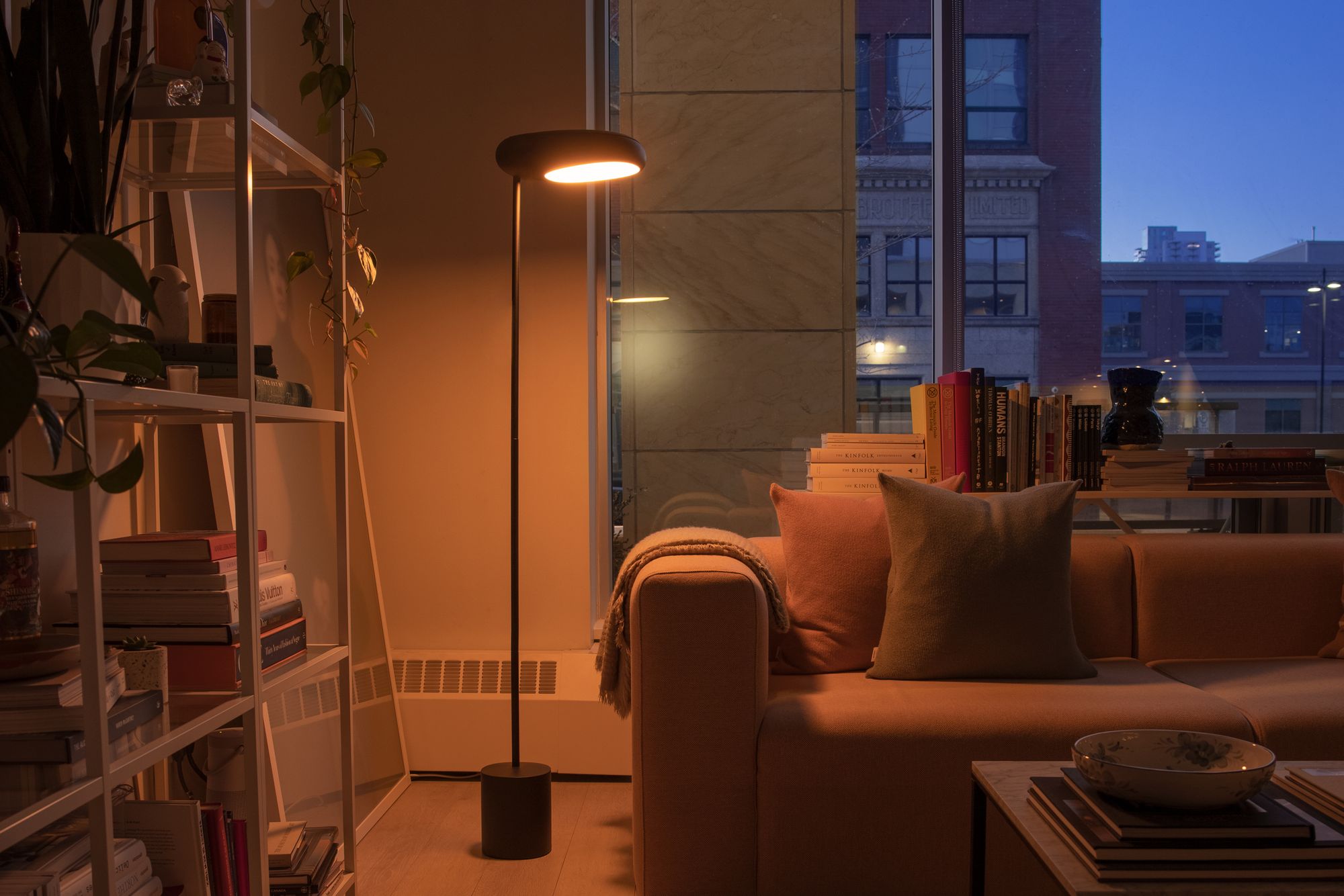
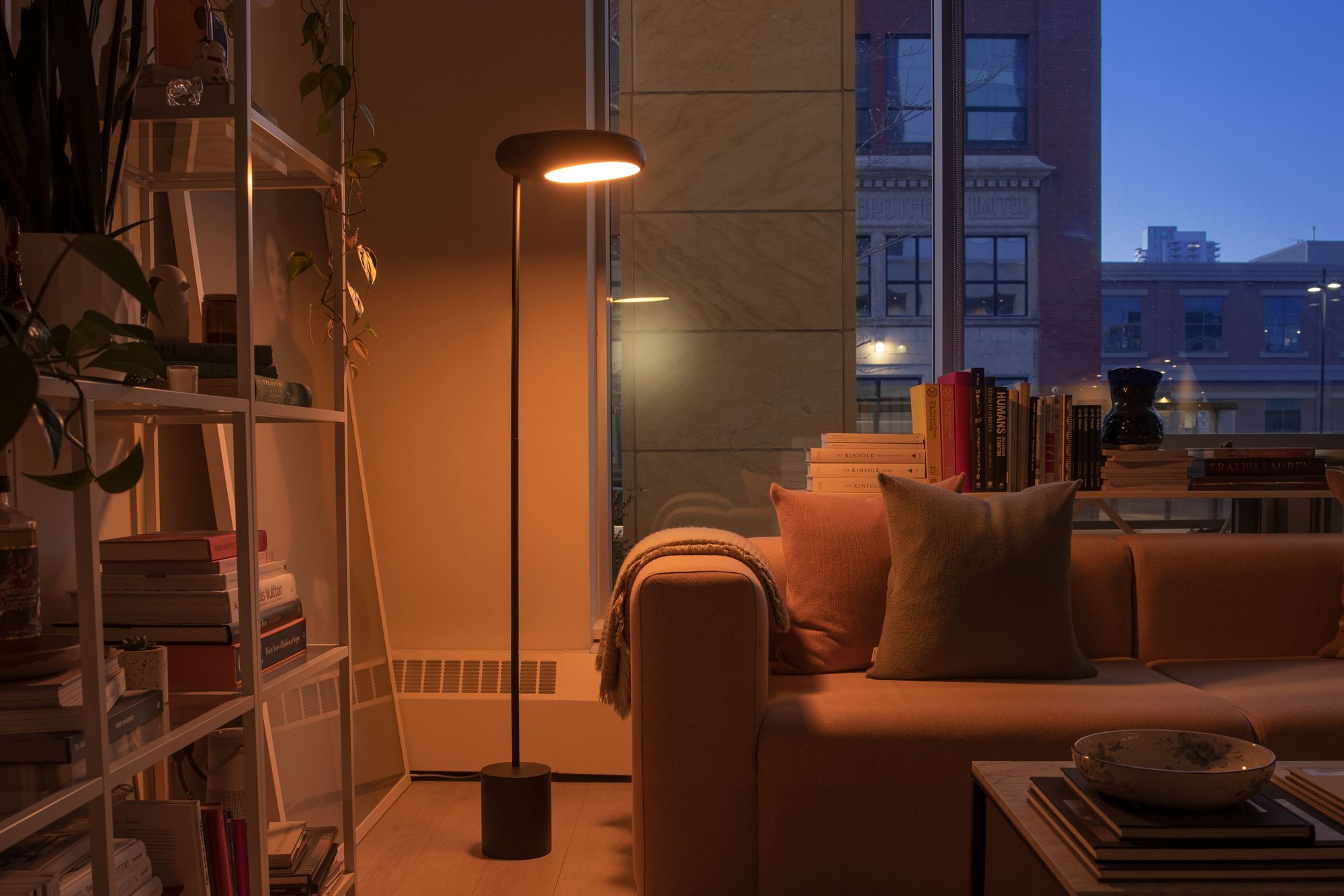
Light is often described as “warm” or “cool” but it can be confusing what that really means. Which one is right for what setting and how does the Kelvin light scale come into play?
Below, we’ve written a guide on the light color temperature scale to help break down the basics and dissolve some of the mystery around the science of color temperature.
What is light color temperature?
In a supermarket, you may notice the fluorescent lights are crisp and appear bright white but in your favorite restaurant, the lighting is moody and gives off an orange hue. The difference here is the light color temperature. Depending on the temperature of the light bulb, the color of the glow will vary. At higher temperatures, a cool, white light appears. At lower temperatures, a warm, yellow light appears.
What is the Kelvin scale for lighting?
To get technical, Kelvin is the SI base unit of thermodynamic temperature, equal in magnitude to the degree Celsius. Scientific jargon aside, Kelvin is the unit we use to measure light bulb color temperature. In short, the higher the Kelvin rating, the cooler and whiter the light will be.
How to choose the right Kelvin temperature for lighting
Light bulb color temperature is represented in Kelvin, noted by the symbol K. Household fixtures are commonly found in color temperatures on the Kelvin light scale of 2700K (warm incandescent), 3000K (warm white halogen) and 3500K (household fluorescent).
Light color temperatures higher than 3500K are typically used for commercial or hospital applications, as the light is bright and has a bluish daylight cast that can be harsh for home interiors. When selecting new lighting for your home, it’s important to take the Kelvin light scale color temperature into account to ensure the look you want.
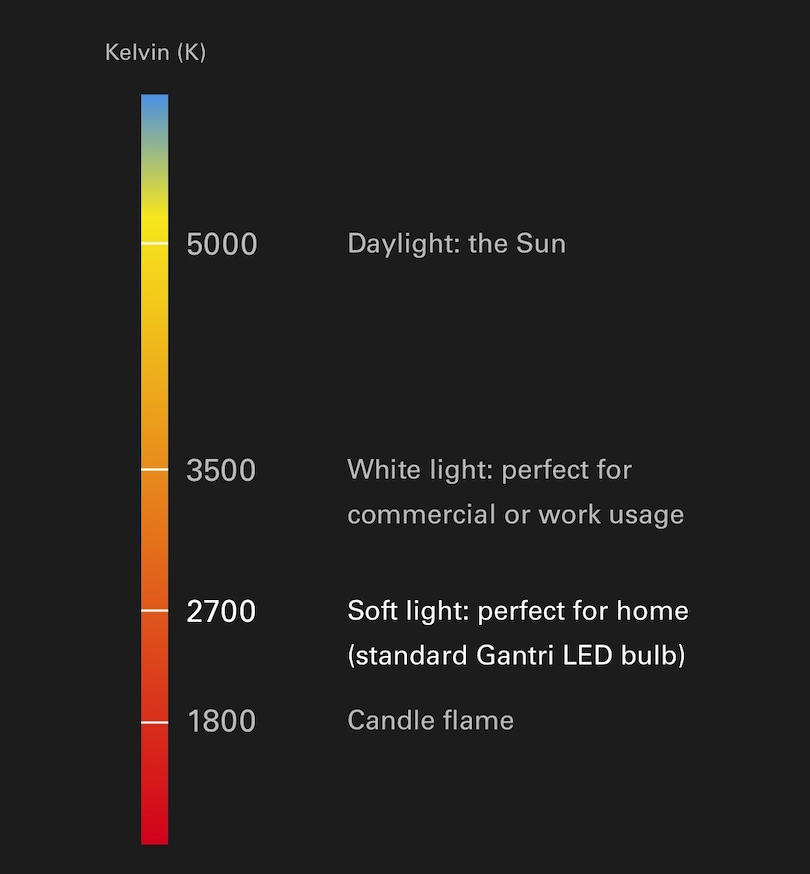
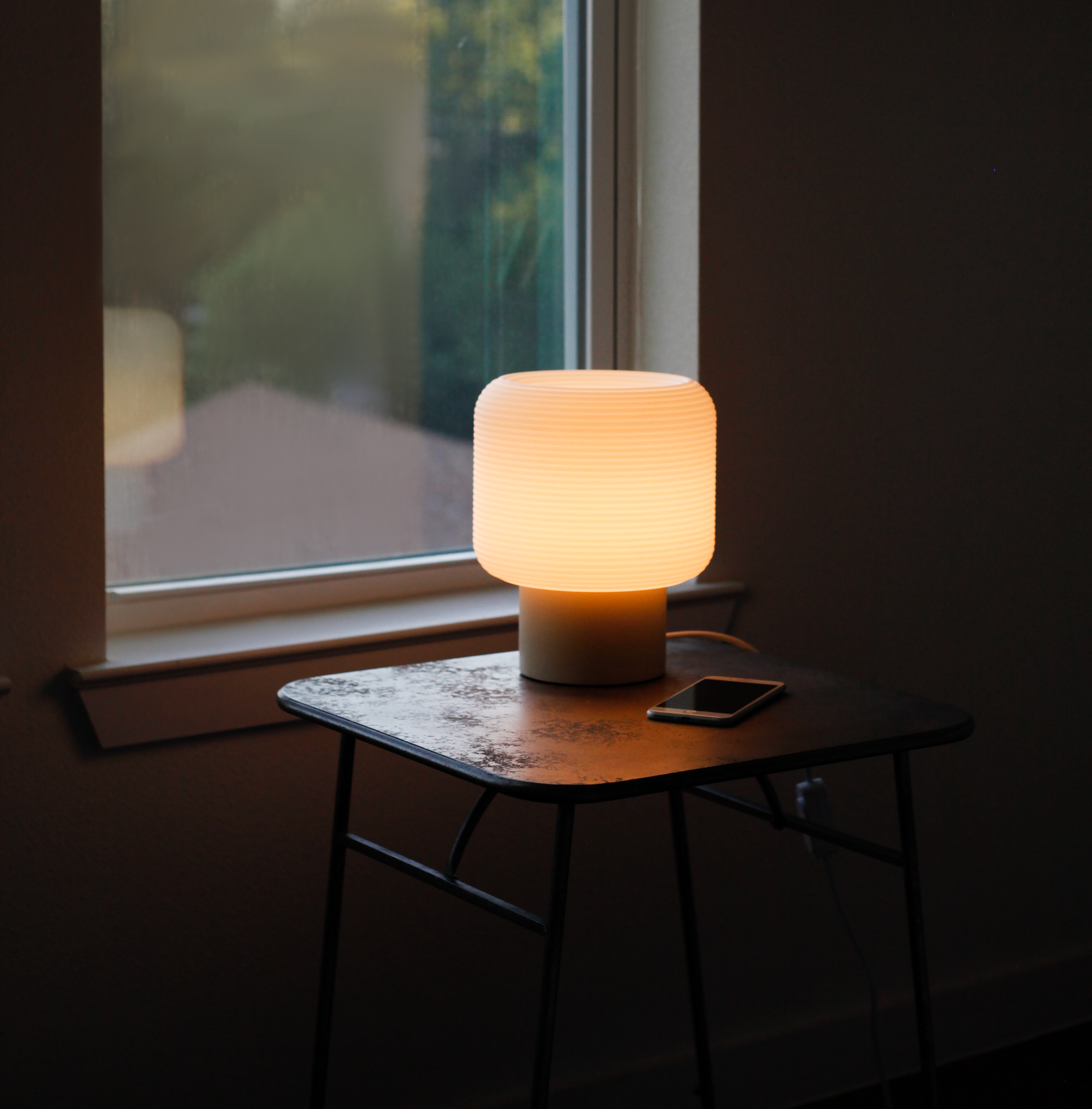
Maskor Table Light by Muka
For a more complete look at the spectrum of the Kelvin light scale, consult the ranges below:
Less than 2000K: A dim glow of light similar to candlelight; best for low-light areas where ambient illumination is welcomed.
2000K-3000K: A soft white glow, often yellow in appearance; best for living rooms, dining rooms, bedrooms and outdoor spaces.
3100K-4500K: A bright amount of white light; best for kitchens, offices, work spaces and areas where task lighting is needed.
4600K-6500K: A bright amount of blue-white light, similar to daylight; best for work environments where very bright illumination is needed.
6500K and up: A bright bluish hue of light, often found in commercial locations; best for bright task lighting.
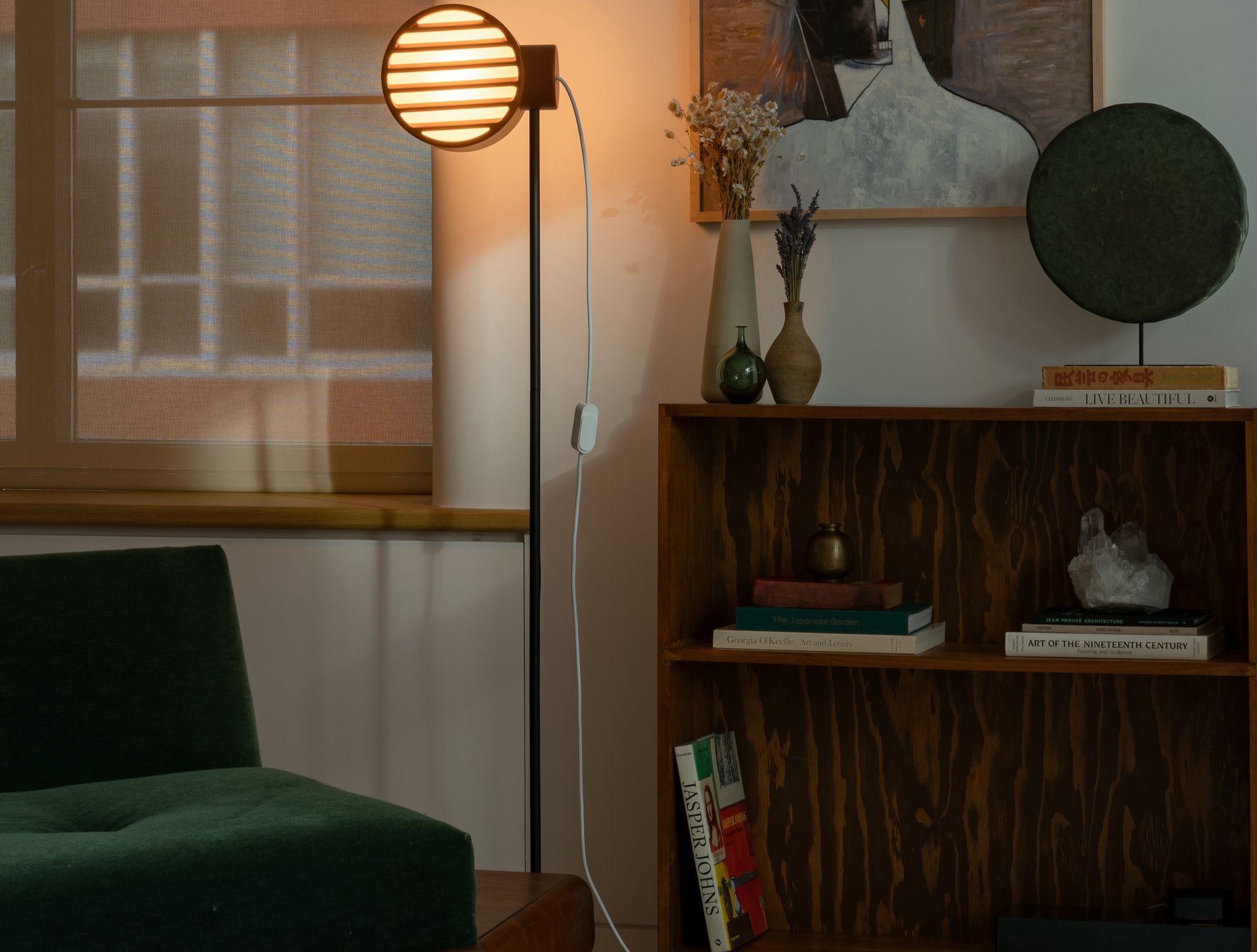
Light color temperature at Gantri
At Gantri, we use LED bulbs with 2700K to produce a warm, comfortable glow for the home. At this light color temperature, you can enjoy a relaxing atmosphere in every room. From evening TV time and dinner with friends to late-night reading and light desk work, Gantri lighting will produce the perfect ambiance throughout your home. With the all-purpose 2700 Kelvin light color temperature and the added bonus of the Gantri dimmer, you can control the intensity to your exact preference.

